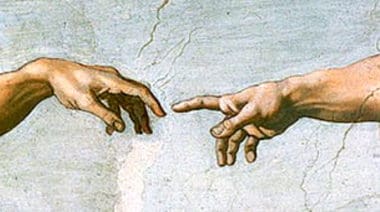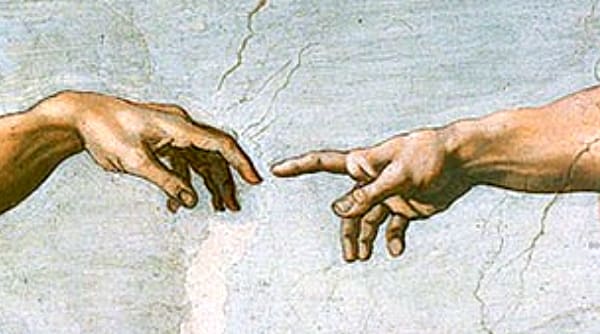…a readers asks:
Dear Father John, I recently had two experiences that I can’t make sense out of. First, after a profound spiritual retreat, I became so convinced of my unworthiness, my sinfulness, that I cancelled a commitment I had made to do a special ceremony of blessing for some friends (non-Catholic). I just felt that I couldn’t stand in God’s place for that ceremony after what I discovered about myself on the retreat! Second, just a week or so later, I was participating in a secular workshop, and during one of the exercises I prayed for a special favor from God, a favor for another participant in the workshop. And the favor was granted in a VERY dramatic fashion, so much so that the entire workshop was interrupted and redirected by it. God worked in a powerful way through me. And that’s my confusion! Is it normal for him to do such dramatic (almost miraculous) things through a person so imperfect as myself? I know he does so through saints, but I am in no way a saint! Can you give me some light about this?
In part I, we talked about whether it is more important to consider God’s will for us or more important to consider our un/worthiness when we are discerning a course of action. We also discussed the fact that God can do wondrous things in spite of our human weakness and that history is replete with countless examples of this. In today’s post, we will look at the theology of mediation, and also how investing in the Lord pays dividends.
The Theology of Mediation
Theologically speaking, the operative concept is “mediation.” For some reasons, although God chose to create the universe without our help, he chooses to work through us and with us – enlisting us as his partners and  co-workers – for his great task of redeeming the universe. This is part of the marvelous dignity of what it means to be a Christian. From the humblest, poorest widow, to the most talented and exalted gold-medalist, we can all cooperate in building up Christ’s eternal Kingdom if we put ourselves into God’s hands and give him room to work, as you did in the workshop. You could have fled, avoided, changed seats, refused to participate… Instead, you chose to invoke God’s grace and give yourself to what the situation was demanding, and God showed up in a powerful way. We can do that with everything we do, with everything that happens to us, turning our little, very unworthy lives into channels of God’s mighty and amazing grace.
co-workers – for his great task of redeeming the universe. This is part of the marvelous dignity of what it means to be a Christian. From the humblest, poorest widow, to the most talented and exalted gold-medalist, we can all cooperate in building up Christ’s eternal Kingdom if we put ourselves into God’s hands and give him room to work, as you did in the workshop. You could have fled, avoided, changed seats, refused to participate… Instead, you chose to invoke God’s grace and give yourself to what the situation was demanding, and God showed up in a powerful way. We can do that with everything we do, with everything that happens to us, turning our little, very unworthy lives into channels of God’s mighty and amazing grace.
More or Less
There is something else to think about, though. And it’s this. A channel, or a riverbed, can be small or big, narrow or wide, deep or shallow. The bigger, wider, and deeper the riverbed, the more water it can carry. Likewise, the more mature we are spiritually (the emptier we are of disordered selfishness and the fuller we are of Christ-like love, in all its myriad forms), the wider a channel of God’s grace we can be. And the wider a channel of his grace we become, the more freely he can work in and through us, and the more intimate becomes our union with him and our collaboration with him in his great project of salvation history. This is why, for example, in the Parable of the Talents (Matthew 25), the servants who invested well the few coins they were given at first ended up being rewarded by receiving the governorship of various cities in the kingdom. Their good use of some initial, small gifts, led to their being able to receive greater gifts and a greater connection with the life and work of the king. Likewise, the more we lend ourselves to God’s work, out of love, the deeper our friendship with him becomes, the more we become involved in his everlasting Kingdom.
So, let’s not be surprised at the wonders God works through even weak and spiritually immature people like ourselves. Instead, let’s rejoice in his generosity and throw ourselves into his service, day after day.
+
Art for this post on God’s will: Detail of Creation of Adam, Michelangelo, circa 1511, PD-US author’s life plus 100 years or less, Wikimedia Commons.


